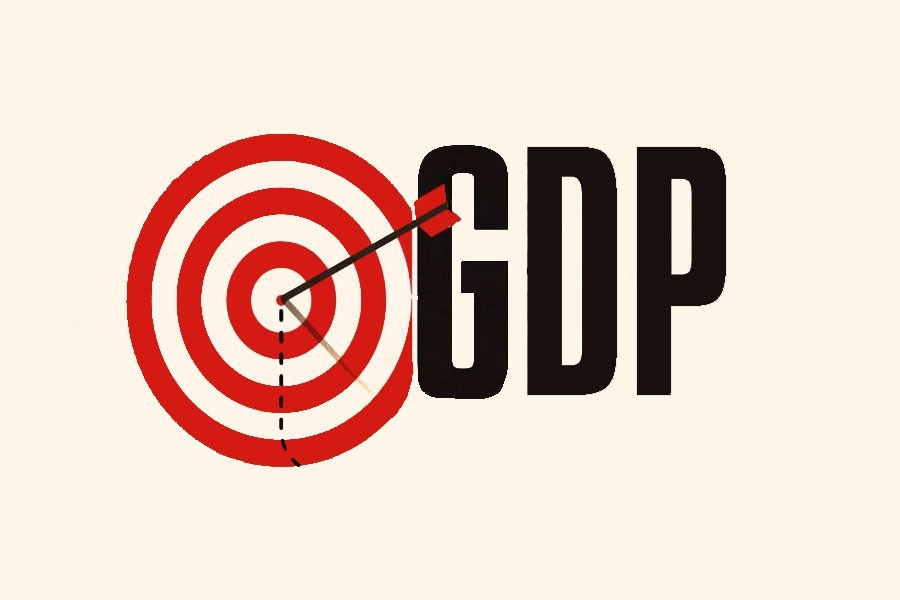Bangladesh is set to add around US$26 billion or Tk 2.2 trillion to its GDP in this financial year if the official growth projection of 7.4 per cent stands valid finally. The finance minister sounds euphoric when he calls the GDP growth target pragmatic, despite the fallout of the coronavirus outbreak on all aspects of the economy.
External actors have thankfully applauded Bangladesh's resilience shown during the pandemic, mainly based on remittances and export earnings. Sometimes, it's hard to understand if recognition coming from outside boosts popular confidence or instigates policymakers' complacency.
The World Bank's just-released Bangladesh Development Update has reported signs of recovery of the economy. Bangladesh's growth, it has argued, would be supported by a recovery in manufacturing, strong export demand, and a rebound in construction supported by accelerating public investment, and robust service sector growth.
In such a context, the finance minister may prove to be right in the growth estimation. Then, doesn't it imply that only a tiny group benefitting from the formal economy flourished creating a higher resource gap?
Even before the pandemic, when the growth story was widely being told and sold, critics warned about 'widening inequality', an issue which was lost in the euphoric discourses.
To refresh our thinking of what increase in market value of domestically produced goods and services in a year means to all men and women living in the country, let's inform ourselves, once again, that ownership of all in defining or calculating the gross domestic product (GDP) is immaterial. So, a growth-as-usual scenario, amid vicissitudes of the pandemic, indicates that the majority's exclusion doesn't matter much in changing the aggregate value of the economic output of the year. We are also hearing about hiring of robots, however, for non-creative jobs.
Over a seven-month period after mid-March 2020, 'America's 614 billionaires grew their net worth by a collective $931 billion', according to a USA Today report.
In Bangladesh, we have no idea of who actually would capture the share of $26 billion, the amount projected as the GDP growth at a rate of 7.4 per cent for the year 2020-21.
This estimate contrasts the estimates like increase in percentage of the poor in Bangladesh population to 30-40 recently from the pre-Covid-19 level of roughly 20 per cent.
Formal jobs have shrunk and income of many jobholders has eroded. The vast informal sector has seen loss of livelihoods opportunities for wage earners, small traders and micro entrepreneurs. The youths who were ready in late 2019 to start career are mostly staying at home and so do the new entrants of 2020 and 2021. Collectively, they could emerge as an army of six million unemployed workforce, whereas the market is almost unlikely to create fresh jobs very soon.
One may also rue over the fact that if all these 'labour' forces were engaged in productive activities, the country would not have wasted certain percentage of economic growth, accumulation of wealth, to be specific. Although their inclusion into the GDP process is not guaranteed, these people are already part of the market as consumers and also as cheap labourers whenever demand arises. Political elements enjoy the luxury of celebrating this economic attainment, as the main indicator, which is often alien to most people. Fatigued by too much buzz of the statistical development, people no more find the GDP growth as a very appealing story, if and when they are excluded.
Perhaps, the pandemic leads to not just collapse of growth in most countries but it is rather going to question the method that has no reflection on welfare of the people.
The unhappiness of disparity, which comes as side effects of economic acceleration and is justified by beneficiaries of the growth, may not be acceptable in the coming world.
Data available in the developed countries help stakeholders make their conclusion and react to the situation. Developing nations like ours can't always produce quality statistics of every matters of life but people know their own economic conditions and can read the symptoms in society devoid of statistical coating of reality.
Every major global event like war and epidemic brings changes and calls for changing systems and methods to meet the unaddressed and new needs of life. Development thinkers may need to at least amend the old ones in the post-pandemic period.


